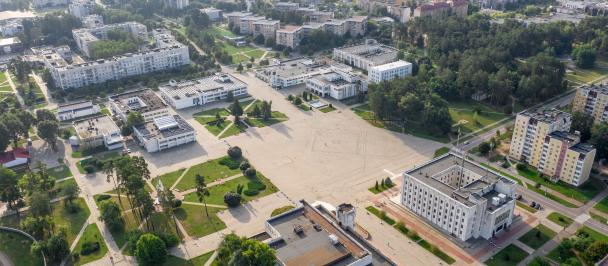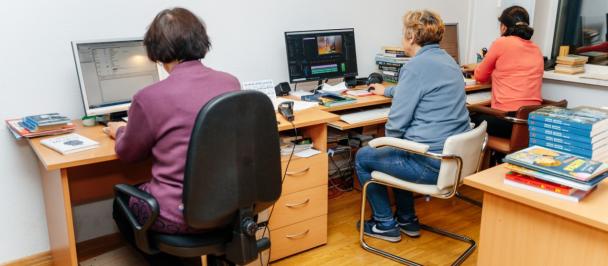Rehabilitation of children with disabilities amidst the war: the story of the NGO “Svitankova Zoria 777”
September 25, 2023

The full-scale Russian invasion of Ukraine in 2022 was a severe blow to millions of Ukrainian families. Children are one of the most vulnerable social groups in peacetime, especially in wartime, constantly needing exceptional support. Displaced children with disabilities, who found themselves in unfamiliar places, along with their parents, are now forced to live in dormitories modular towns and share space with other families.
The “Klein” Child Development Center is in the heart of Rivne. For two years now, it has been operating based on the NGO “Svitankova Zoria 777”, which was founded by Olha Symonchuk in 2011.
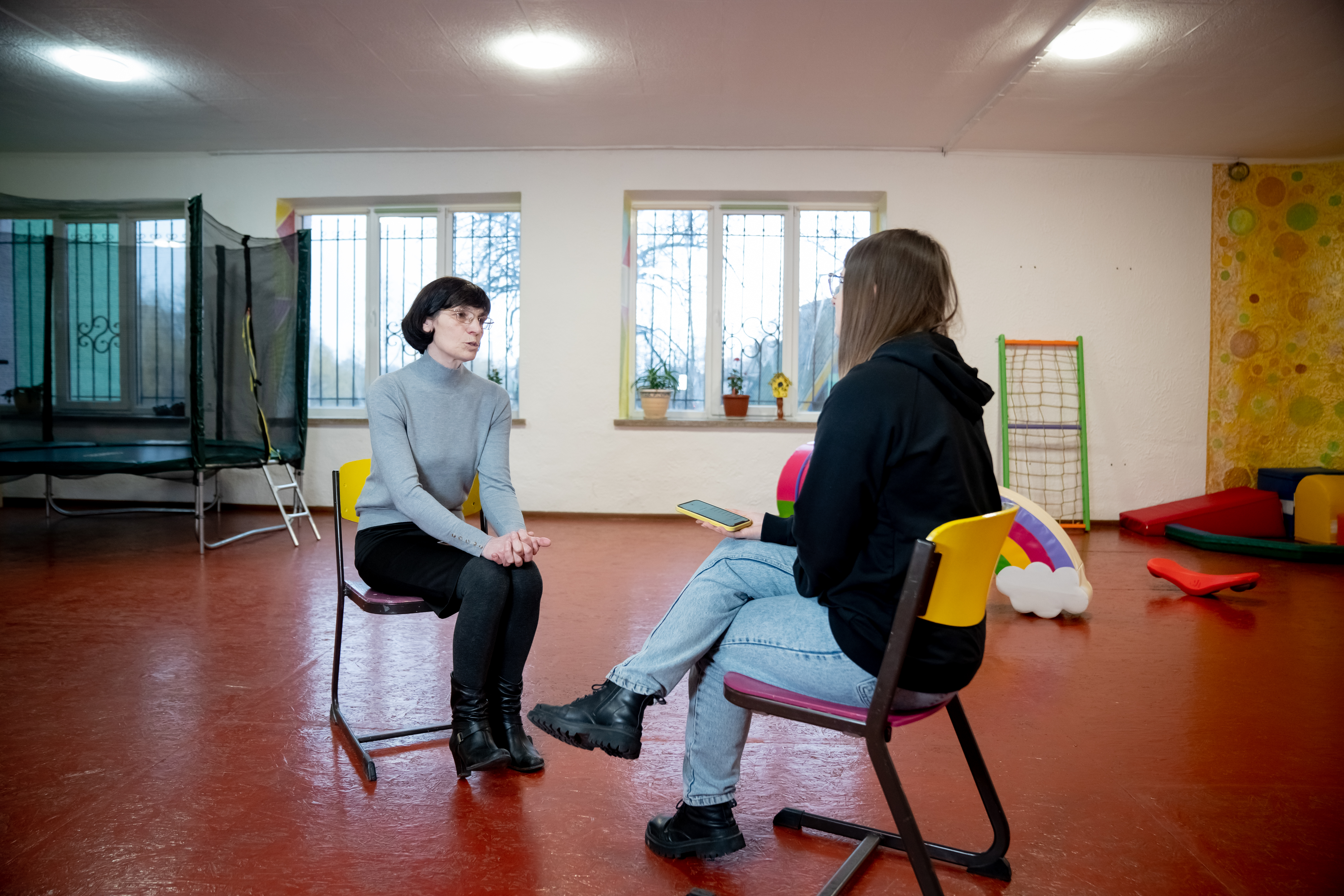
Olha Symonchuk, founder of the NGO “Svitankova Zoria 777” (left)
“I’ve always loved the rising star; it’s the beginning of everything. However, when we registered the organization, the wording ‘rising star’ was mentioned numerous times. Hence, my colleagues advised us to add some digits to retain our wanted name,” Olha recalls.
In 2022, Svitankova Zoria 777 received support from the EU4Dialogue programme of the European Union and the United Nations Development Programme (UNDP) for a complex centre for children with disabilities as part of the “Response of civil society to the needs of women and men, especially those living in hard-to-reach places and representatives of vulnerable groups” competition. The centre offers the services of speech therapists, a child psychologist, correctional educators, and music teachers.
“It is always interesting to be involved in new projects. This way, more people learn about our activities and so we can help others. Our project is diverse: there are a lot of events, and we work with professionals. It brings pleasure and results,” Olha Symonchuk shares her impressions.
The centre’s team includes pedagogues, speech therapists, and psychologists who work with children with various forms of autism and delayed mental or language development. If children without disabilities want to work with a speech and language therapist or attend dance or music classes, they go to the same group as those with disabilities.
“It is important to understand that there should be more children without disabilities in an inclusive group. They see people with disabilities in society, so from an early age, they consider it normal. Children with special needs are drawn to their peers and constantly learn from them,” said Olha Symonchuk.
Mark Vladymyrov has worked at the “Klein” Center as a psychologist with children with behavioural disorders for two years. He joined the team at the age of 24. Since a large-scale information campaign was conducted during the project’s activities to involve children in correctional and developmental classes, Mark and his colleagues have held more than ten art therapy sessions.
“I work with children with mental retardation, sometimes with various phobias. The oldest boy is 16 years old; the youngest girl is one and a half years old, and both have a mild developmental delay,” says Mark.
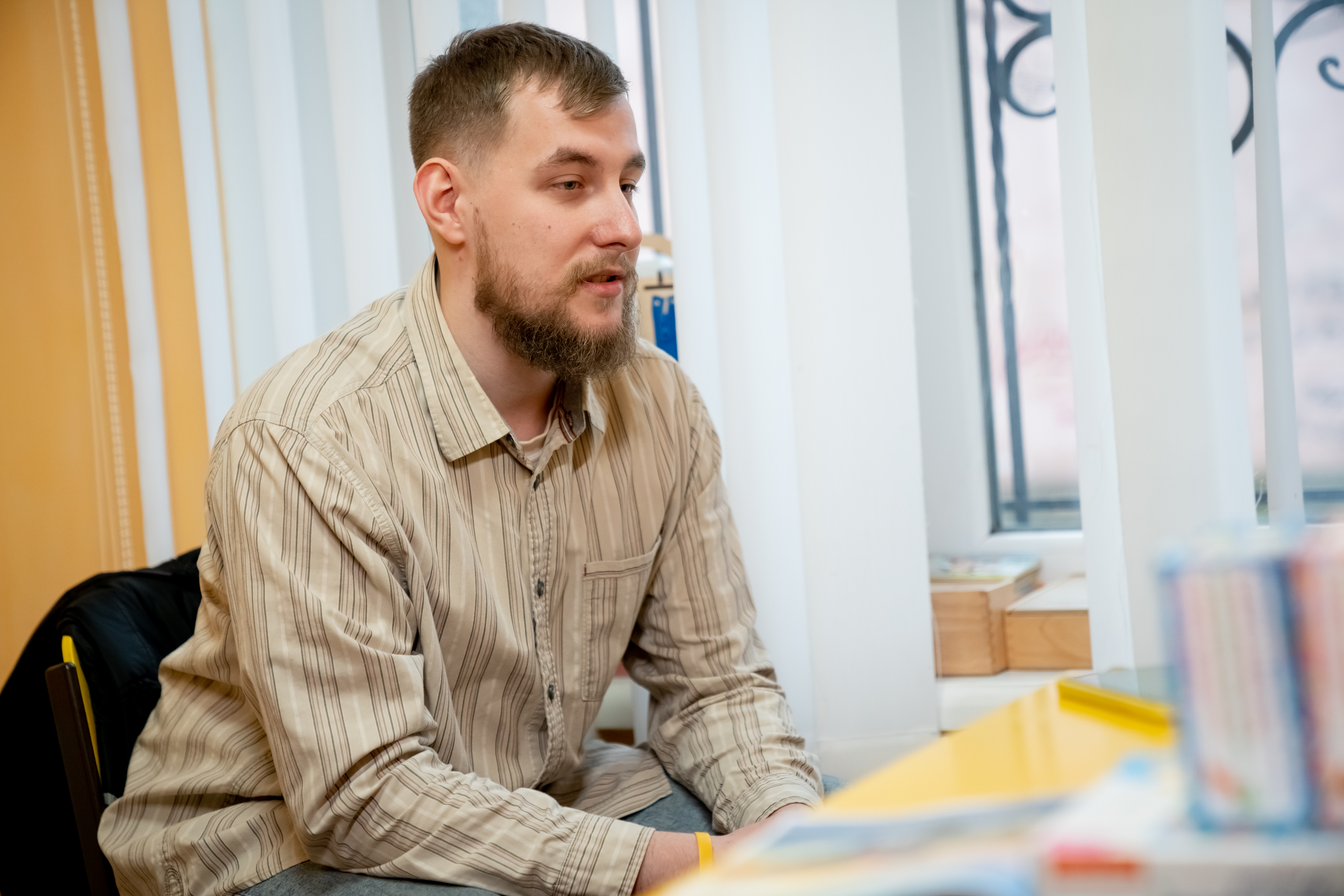
Mark Vladymyrov, a psychologist at the “Klein” Child Development Center. Photo: Artem Poznanskyi / UNDP in Ukraine
In June 2022, Olena Yatsenko, a sensory integration specialist who moved from Bila Tserkva with her daughter after the full-scale invasion of Ukraine, started working at the centre. Olena and her colleagues have conducted over 200 sensory-motor integration classes for children.
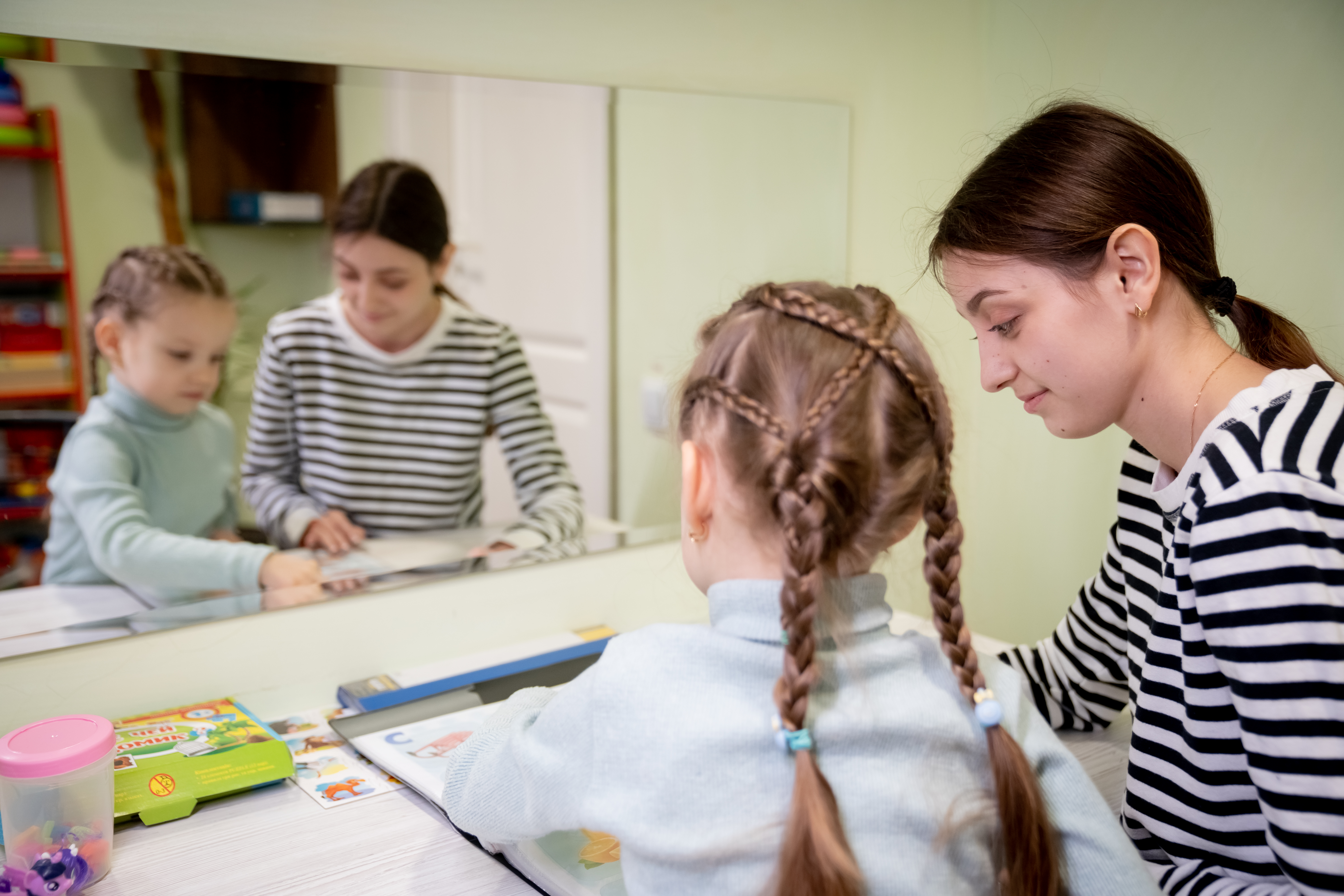
Olena Yatsenko engaging children in sensory integration sessions
“At first, we lived in an IDP dormitory, where we met very welcoming people who tried to create comfortable living conditions for us. This hospitality won us over, so we stayed in Rivne,” says Olena. “It is important for me to work with children with disabilities because I firmly believe I can help them. I observe impressive results of our work because children overcome the problems they came with. It is severe because a child who does not receive appropriate help in time cannot adapt to society.”
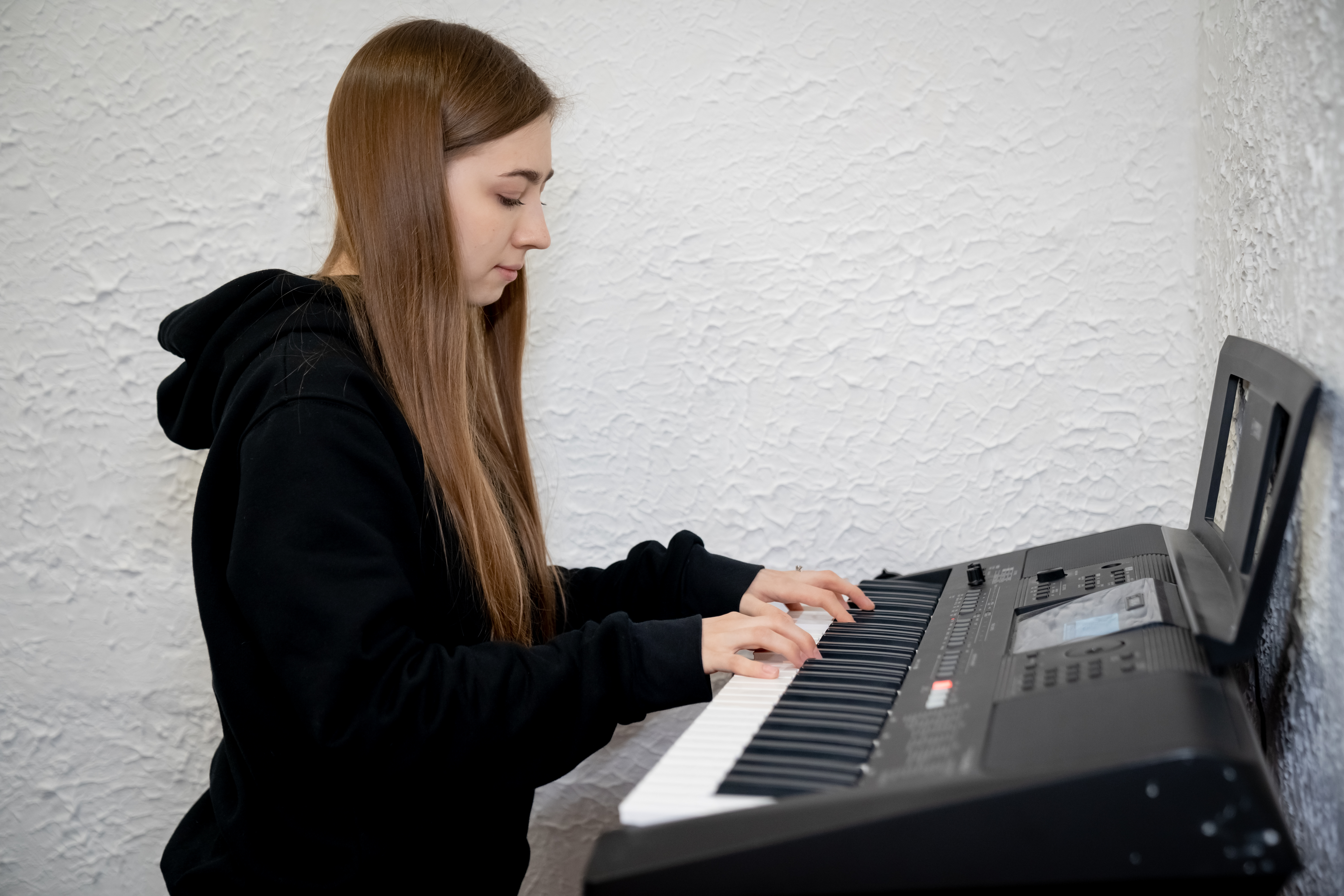
Anna Korolchuk, music teacher at the “Klein” Child Development Center, plays the piano during group music classes. Photo: Artem Poznanskyi / UNDP in Ukraine
In January 2023, 20-year-old Anna Korolchuk joined the centre’s team to teach group music classes. The most significant result of working in groups is socialization. At first, the child adapts individually to a teacher, and a bit later, they must join a group of peers.
Children without disabilities also attend music classes to ensure inclusion and help others learn to interact with each other. Anna has taught more than 150 music development classes.
“Music affects the child’s overall mental state, emotions, and feelings. If the child is in a good mood, the parents are in a good mood, too,” emphasizes Anna.
“It’s wonderful to see the results. Today, I had a girl who has attended group classes five times. At first, she didn’t want to work; it was hard for her to adapt. And today, I saw her doing every exercise, being involved in the process, and keeping trying. Although not everything works out, seeing the children’s eyes light up is very motivating,” she says.
Since the centre was founded, the team has employed a language therapist, 24-year-old Olha Myronchuk, who explained the new challenges of working with children after the full-scale invasion. According to her observations, the war has significantly affected speech development, and children are more likely to experience delays in speaking. She also noted that displaced children are more anxious: they get scared if the door slams, but they are already used to the sounds of air raid alarms. As part of the project, Olha has conducted more than 200 classes.
“When a new child comes to us, the whole team works with them,”— Olha Myronchuk, logopedist at the “Klein” Child Development Center
“It is important for me to work with children with disabilities so that they can heal. I want them to use speech in their lives, to be understood by their parents and others,” says Olha Myronchuk. “I like the integrated approach of the whole team. When a new child comes to us, a psychologist, a speech therapist, and a sensory psychologist work with them—the whole team.”
The centre’s team includes a psychologist who works with parents. The specialists interact with children for only 45 minutes, and kids spend the rest at home. Psychologists held ten sessions for parents to help them interact better with their children and support their development.
“Sometimes, one looks at a child and realizes that it is necessary to start with the parents. If they listen to the specialist, the collaboration is successful. If parents are lazy or feel sorry for their children and allow them to do whatever they want, this can lead to kickbacks. If parents do not realize this, you must find an approach to make them understand. No one is an enemy to their child,” says Olha Symonchuk.
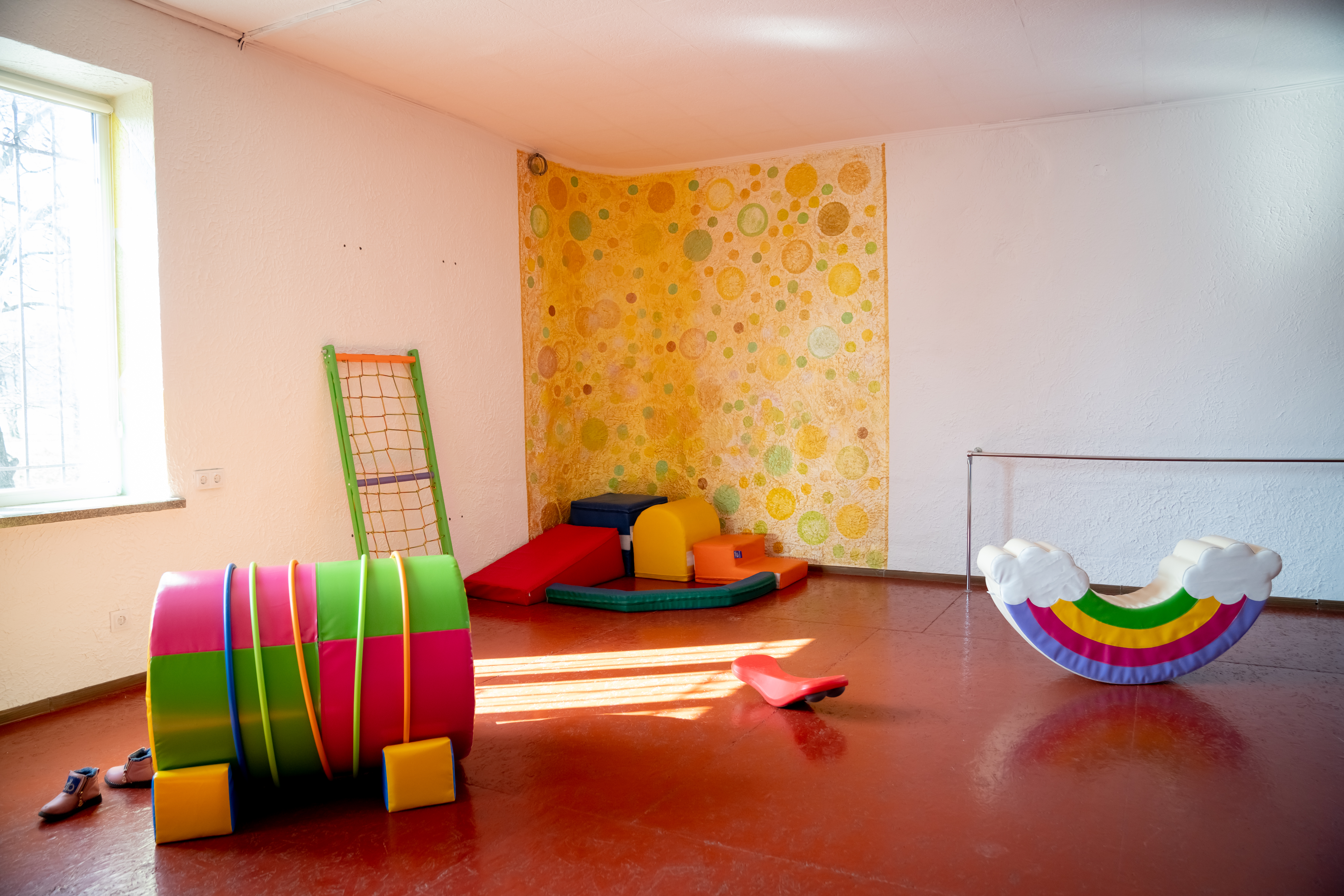
“Klein” Child Development Center
Hanna Romanchenko is the mother of 4-year-old Danylo, who has a mild speech delay. Having lived for a month in their native Kramatorsk after the full-scale invasion, they first sought refuge in Zakarpattia and then moved to Rivne on the advice of their friends.
“When we arrived at the dormitory in Rivne, we immediately started looking for a place to work out with our child—word of mouth helped. We hadn’t known about this centre before, and the music and dance classes here are excellent. We managed to become participants in the project, so my son was given free sessions for a while. The child began to progress, to speak,” says Hanna.
Olha Symonchuk says that children who do not feel well in their new home can come to the centre with their parents and spend some free time there. However, the center’s premises are not just one location where Olha and her colleagues organize events and classes. In particular, the project organized three pet therapy sessions for 110 children at the Rivne Zoo.
“Every mother fights for her child until the last,”— Olha Symonchuk, founder of the NGO ‘Svitankova Zoria 777’ and the ‘Klein’ Child Development Center.
“This is my personal experience, and back then, I had no help; I didn’t even know where to turn. When you meet a mom like you, you know how you can help her. It seems to me that every mother fights for her child until the last. This is our destiny as mothers,” says Olha, her voice trembling.
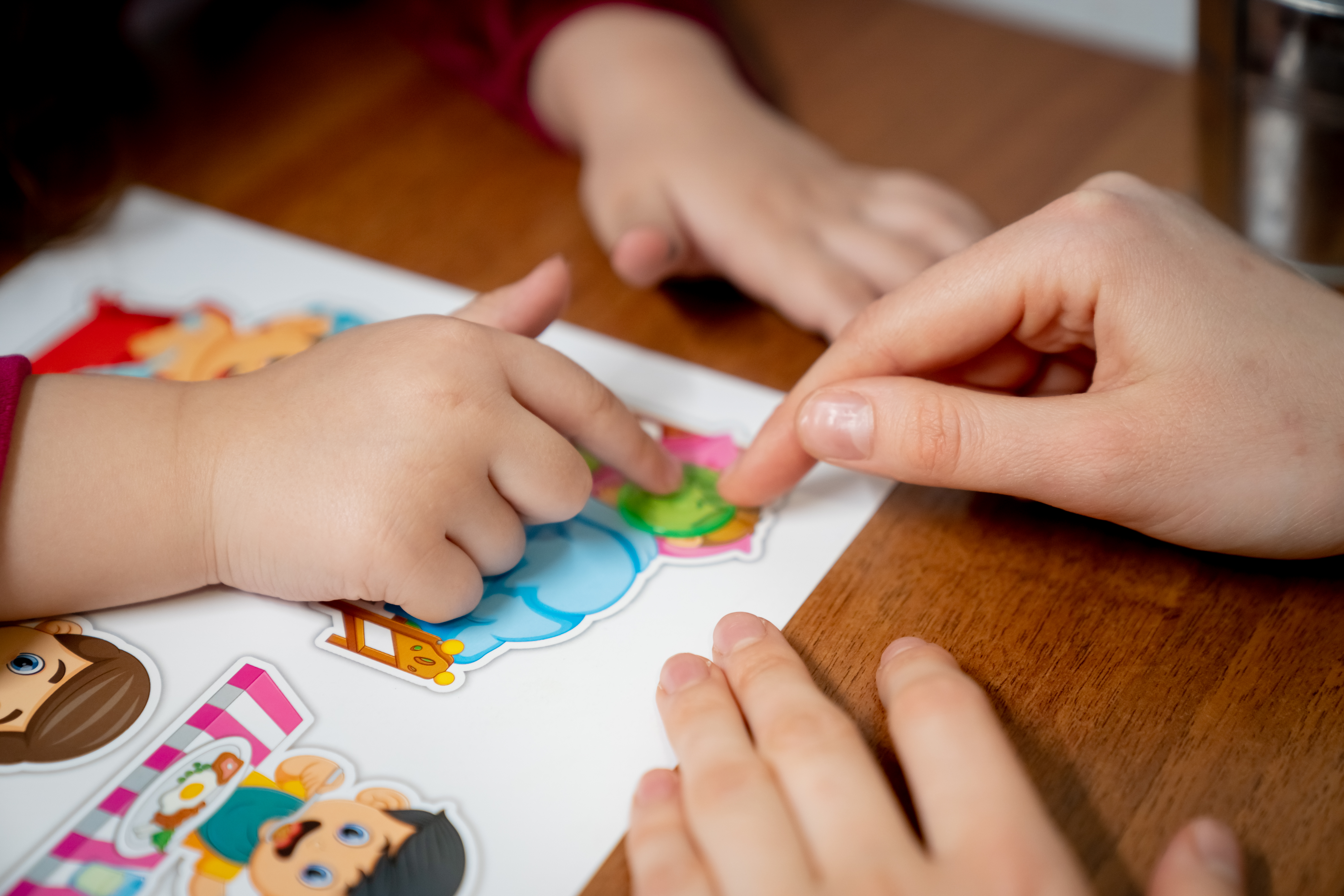
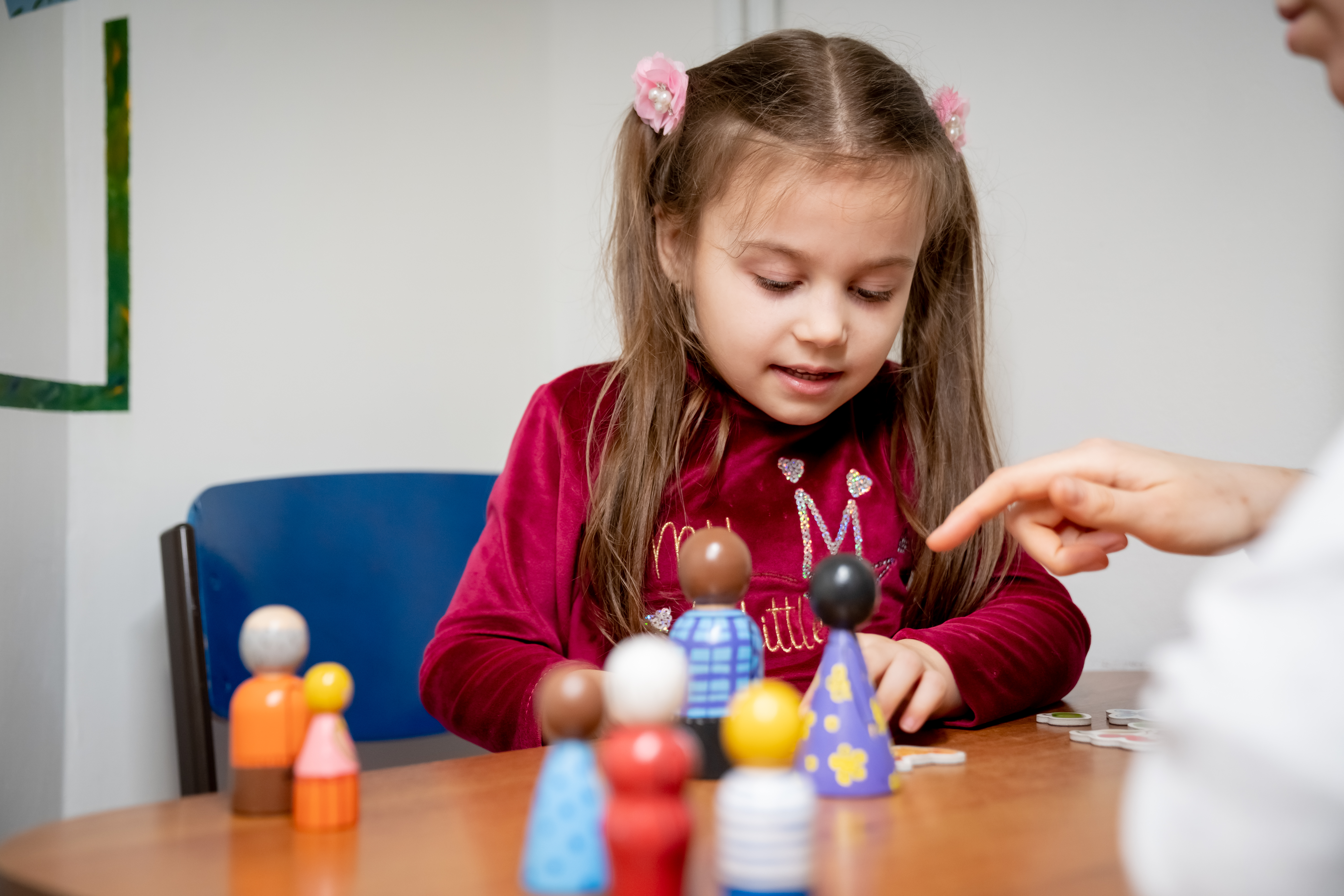
Child at the session in the Child Development Center
Olha’s daughter, Nataliia Kozhemiakina, works as an accountant in a local HOA and helps Olha Symonchuk with documentation for a project supported by the EU and UNDP in Ukraine.
“As part of the project, I kept accounting, reporting, and other supporting documentation. The first challenge was purchasing equipment in the fall of 2022, with constant shelling and power outages. Because of this, suppliers sometimes did not answer calls, and we managed to contact some of them only in early January of 2023,” Nataliia says.
In addition to events and engaging new specialists, the project purchased equipment for classrooms and halls, including trampolines, mats, balls, exercise equipment, etc.
“At first, we received special puzzle mats for the work of a sensory psychologist. Later, a trampoline and desks. It’s great to have the opportunity to help with this project,” recalls Natalia Kozhemiakina, “Although sometimes accounting seems like a monotonous job, it revitalizes the world around me. When there is a movement of funds, there is a movement within the project.”
After the full-scale invasion, the centre suspended its activities for three weeks. However, on the parents’ proposal, it was one of the first organizations in the city to reopen. Almost half of the visitors are children of IDPs, military personnel, and those in difficult life circumstances. Parents say the centre creates all the conditions for their children to feel comfortable. Some families have returned to Rivne on purpose to continue their children’s activities at the centre. The children like group music classes the most: they have attended more than 150 of them as part of the project. Parents also enjoy attending psychological seminars and learning how to respond adequately to their children’s special needs.
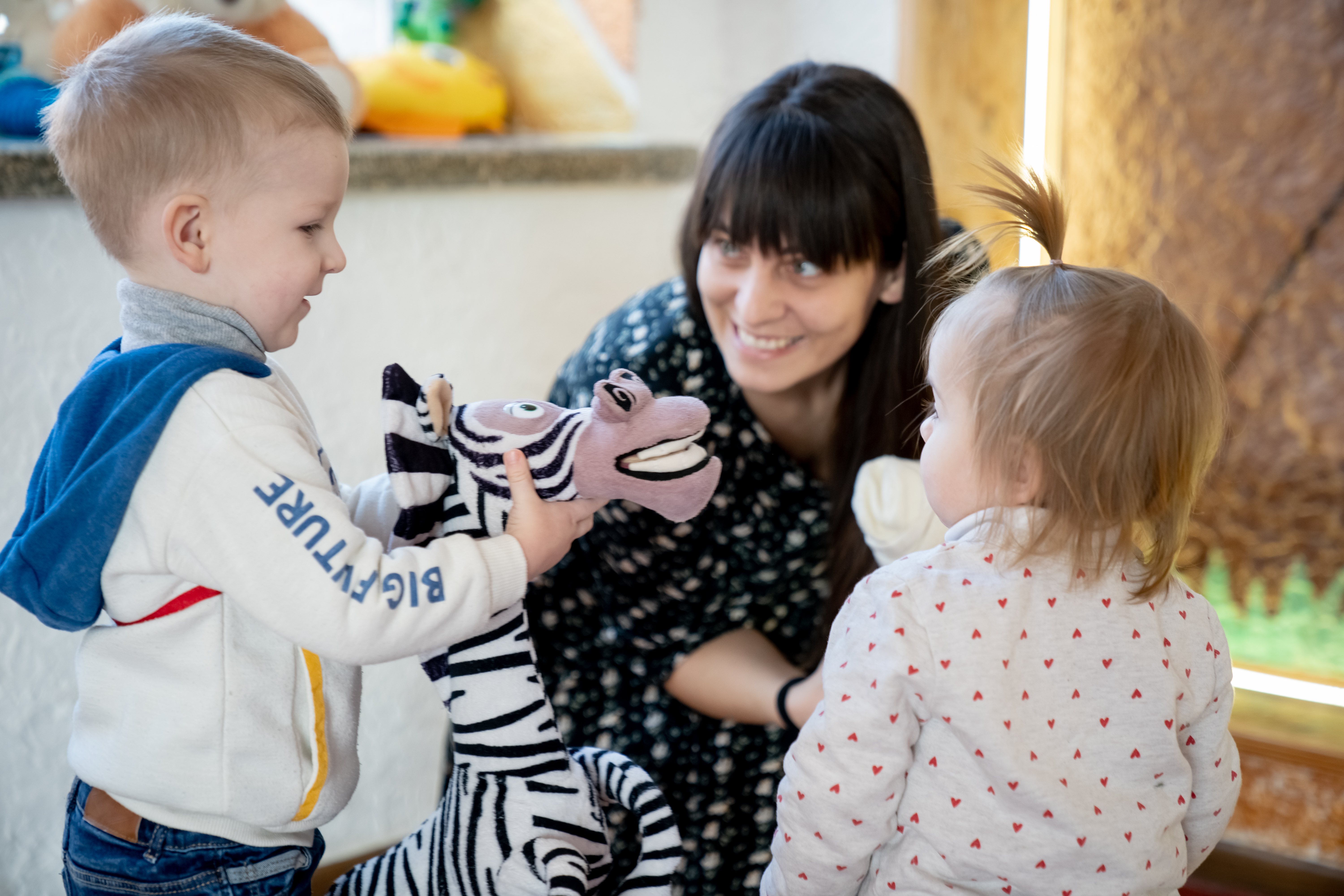
Children at the sessions in the Child Development Center
Background: The NGO " Svitankova Zoria 777” is one of the organizations that received support within the programme ‘Response of civil society to the needs of women and men, especially those living in hard-to-reach places and representatives of vulnerable groups,’ supported by the European Union (EU) and the United Nations Development Programme (UNDP) under the EU-funded EU4Dialogue regional programme to address the most urgent needs of war-affected communities in Ukraine. The EU4Dialogue programme aims to build a solid foundation for peace by creating better socioeconomic conditions and a safe environment for war-affected communities.
Author: Marharyta Lubkova
Photos: Artem Poznanskyi/ UNDP in Ukraine
Note: This article was produced with the European Union's and UNDP's financial assistance under the EU4Dialogue programme. The contents do not necessarily reflect the views or positions of the European Union or UNDP.

 Locations
Locations


